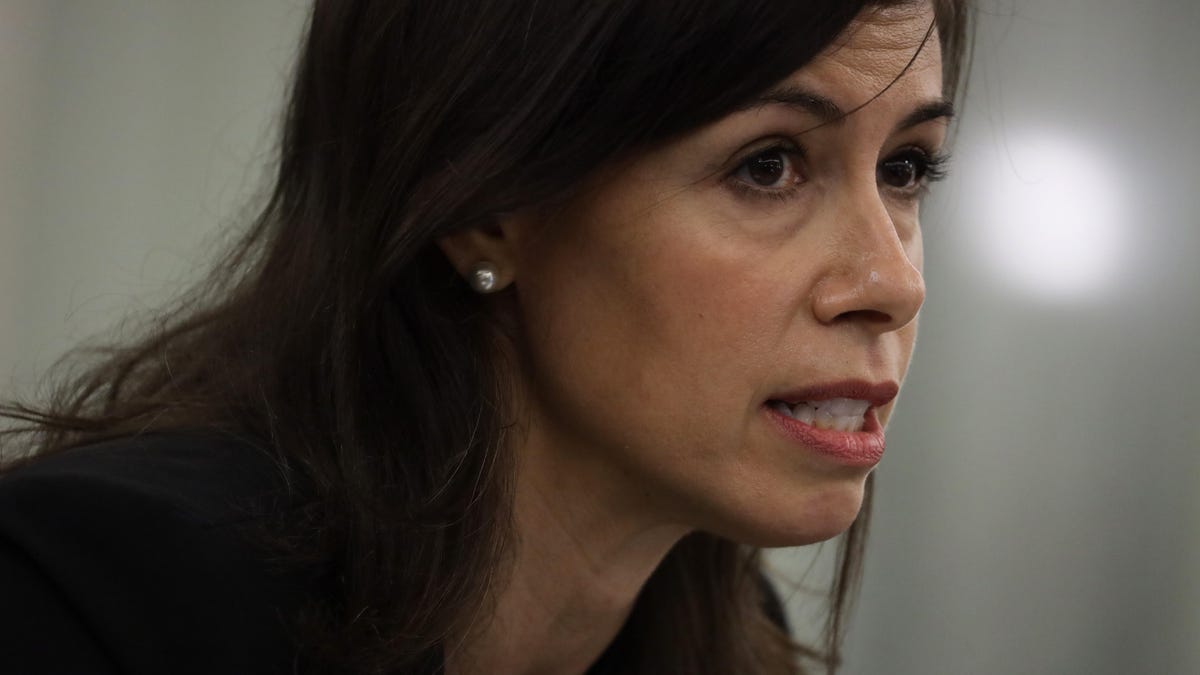FCC slaps robocaller with $225 million fine as part of broader crackdown
It's the biggest fine in the agency's history, as the new acting FCC chairwoman takes on robocalls.

Acting FCC Chairwoman Jessica Rosenworcel has launched her first major effort to combat robocalls.
The Federal Communications Commission issued its largest fine in history, against Texas-based telemarketers who transmitted approximately 1 billion robocalls to sell fake health insurance policies. The $225 million fine is part of the first major effort by acting FCC Chairwoman Jessica Rosenworcel to stamp out illegal robocalls.
The agency alleges in a statement Wednesday that the telemarketers illegally spoofed phone numbers to sell short-term, limited duration health insurance plans, which falsely claimed to offer health insurance plans from well-known health insurance companies such as Aetna, Blue Cross Blue Shield, Cigna and UnitedHealth Group.
The agency also delivered cease-and-desist letters to six voice providers that have consistently violated FCC guidelines on the use of autodialed and prerecorded voice message calls, the agency said. And the FCC launched a Robocall Response Team as well as delivering letters to the Federal Trade Commission, the Department of Justice and the National Association of State Attorneys General to renew state-federal partnerships to combat the proliferation of illegal robocalls.
"Unwanted robocalls are not only a nuisance, but they also pose a serious risk to consumers who can inadvertently share sensitive, personal information in response to bad actors' malicious schemes," Rosenworcel said in a statement. "I'm proud to unveil my first set of actions to put a renewed focus on what the FCC can do to combat the issue that we receive the most complaints about."
Rosenworcel said it's important for the FCC to coordinate within the agency and with federal and state partners to combat the problem. She said the cease-and-desist letters, along with the massive fine, should serve as a warning to perpetrators that the FCC will take enforcement action.
Robocalls have been a persistent problem in the US. The coronavirus pandemic has served as fertile ground for illegal callers to take advantage of Americans by offering things like nonexistent medical equipment, bogus testing kits for COVID-19 and fake health insurance plans.
Rosenworcel is just the latest in a line of FCC chairs to vow to fight these annoying calls. Former FCC Chairman Tom Wheeler, appointed by then-President Barack Obama, introduced a series of initiatives aimed at stopping robocalls. Former Chair Ajit Pai, who served under then-President Donald Trump, also saw combating robocalls as a main priority. In fact, the $225 million fine finalized and announced by the FCC on Wednesday was proposed in June under Pai's FCC.
Now Rosenworcel says she'll be getting tough on robocallers, too. The letters sent to the voice providers demand that they immediately cease transmitting illegal robocalls and take steps to prevent their networks from continuing to be sources of such calls.
The FCC has authorized voice providers that receive calls from the companies to block voice traffic if the warned providers don't take steps to effectively mitigate the problem.
The Robocall Response Team will consist of a group of 51 FCC staff members, across six bureaus and offices, tasked with coordinating and implementing the agency's anti-robocall efforts.
"The Robocall Response Team will bring together Commission efforts to enforce the law against providers of illegal robocalls, develop new policies to authenticate calls and trace back illegal robocalls, and educate providers and other stakeholders about what they can do to help," the FCC said in a press release.

